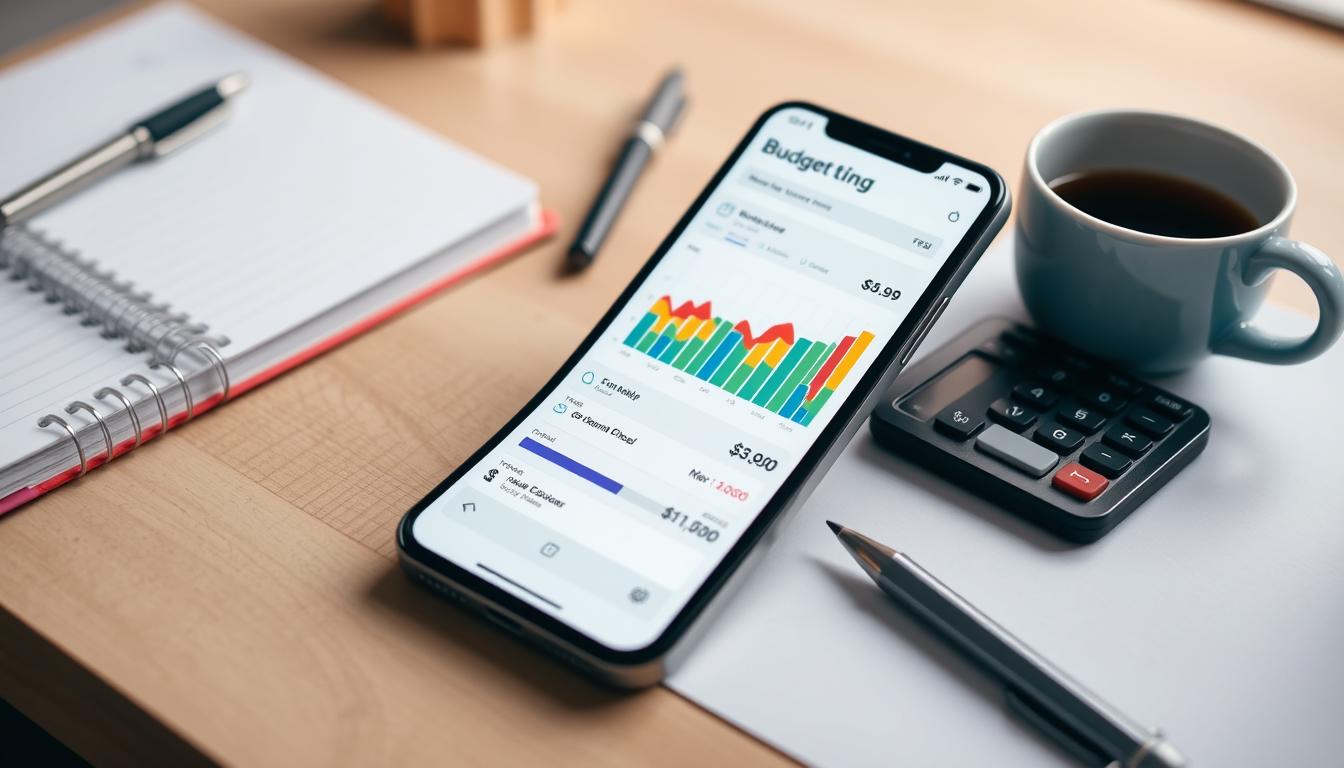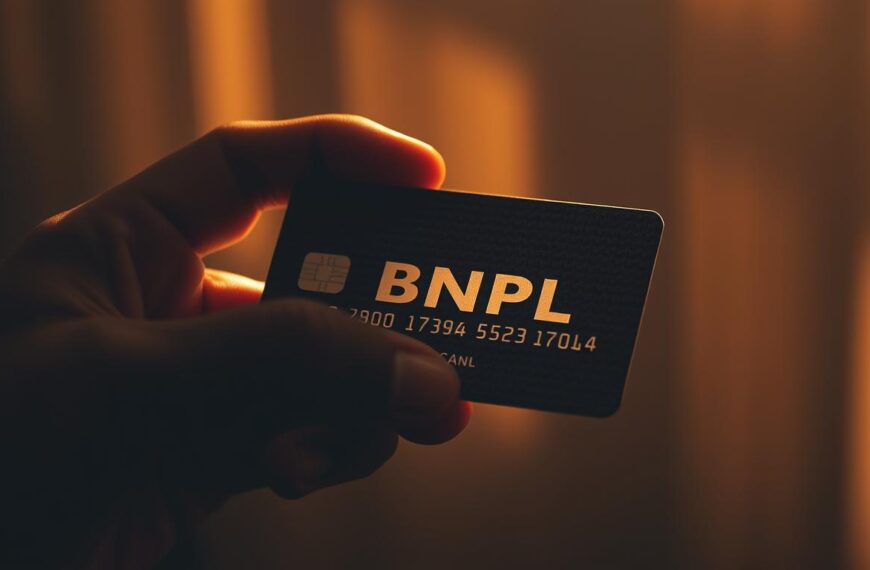Budgeting tools are key for managing your money well. They help you plan your spending based on past expenses. This way, you can keep your spending in check and save for the future.
Businesses also find budgeting tools useful. They use budgeting and forecasting software to predict their income and expenses. This helps them manage their finances better and avoid overspending.
Budgeting tools make managing money easier. They help track expenses, manage income, and set financial goals. Their user-friendly design makes it simple to monitor your finances and make smart spending choices.
Using the right budgeting software saves a lot of time. For example, creating an annual budget can take just minutes, not days. Automation also cuts down on manual data entry time1. This means you can spend more time on planning your finances, not just doing paperwork.
There are many budgeting tools available, from free ones like Mint to paid ones like YNAB. No matter your budget, there’s a tool that can help you manage your finances better2. By using these tools, you can take charge of your money and work towards financial stability.
Understanding the Fundamentals of Financial Planning
Financial planning is key to a stable future. It means setting goals, managing money, and saving well. Let’s look at the main parts of financial planning and how they help your financial health.
What Defines a Budget
A budget is a detailed plan of your money. It shows your income and what you spend. It helps you track expenses and use your money wisely. A good budget helps you know what you need versus what you want3.
The Importance of Financial Organisation
Keeping your finances in order is vital. It means sorting out your spending, watching your income, and checking your finances often. Being organised helps you spot where you can do better and make smart money choices.
Common Financial Planning Challenges
Many struggle with financial planning. Issues include not knowing what you spend, missing payments, or not keeping up with your budget. To beat these, make a solid savings plan and keep your budget up to date4.
- Build an emergency fund to cover 3-6 months of expenses
- Develop a strategy to reduce debt and manage expenses
- Ensure adequate insurance coverage for unexpected events
- Start investing for long-term financial security
By tackling these basics, you’ll be ready to manage your finances better. This will help you aim for a secure financial future.
Benefits of Using a Budgeting Tool
Budgeting tools help you manage your money better. They show you how much you earn and spend. This helps you make smart choices about your money5.
They make it easy to track your spending. By sorting your expenses, you see where you can save. This can lead to big savings on daily costs5.
Debt management gets easier with these tools. They keep you updated on your debts and how you’re paying them off. This helps avoid getting deeper in debt by finding ways to cut costs without giving up your lifestyle5.
They also help with long-term planning. You can set up an emergency fund. This fund is great for unexpected bills or broken appliances5.
For businesses, these tools are even more useful. They save time, boost efficiency, and improve reports. They help companies make quick, smart decisions with accurate forecasts and budget updates6.
In short, a budgeting tool gives you control over your finances. It offers insights for saving, helps you reach your goals, and supports wise financial choices. They are essential for both personal and business financial health.
Essential Features of an Effective Budgeting Tool
Choosing the right financial software is crucial for managing your money. Let’s look at the key features that make a budgeting tool effective.
Expense Tracking Capabilities
A good budgeting tool tracks your expenses well. It helps you sort spending into needs and wants. This gives a clear view of where your money goes.
This is important because 15% of UK adults have no savings for emergencies. Also, 28% have less than £1,000 saved7.
Income Management Functions
Tracking your income is key for a full financial picture. The best tools let you monitor different income sources. This ensures all your earnings are recorded.
This helps in planning and allocating funds across various spending categories.
![]()
Customisable Categories and Labels
Personalisation is crucial in budgeting. Tools like YNAB focus on proactive budgeting. They use principles like “Give Every Dollar a Job” and “Age Your Money”7.
This lets users adjust the tool to fit their financial needs. It makes budget analysis more relevant and useful.
Reporting and Analytics Features
Good reporting and analytics are key for making smart decisions. Modern budgeting methods like Financial Scenario Planning and Rolling Forecasts are becoming popular8.
These features give insights into spending patterns, savings, and overall financial health.
| Feature | Benefit |
|---|---|
| Expense Tracking | Clear view of spending habits |
| Income Management | Comprehensive earnings overview |
| Customisable Categories | Personalised budgeting experience |
| Analytics | Data-driven financial decisions |
By using these key features, budgeting tools can greatly improve your financial organisation and planning. The right tool should match your needs and financial goals.
How to Implement a Budgeting System Successfully
Creating a solid budgeting system is key for managing your money well. Start by collecting all your financial documents like bank statements and bills. This helps you understand your current financial state and makes better decisions. Good budget management can save you £3,000 to £5,000 a year9.
Setting Realistic Financial Goals
After gathering your financial data, set achievable goals. Short-term goals might be cutting down monthly costs, while long-term goals could be saving for retirement. Be truthful when filling out your budget to get accurate financial insights9. Overspending can lead to debt problems9.
If your non-mortgage debts are more than half your after-tax salary, it’s time to rethink your finances9.
Creating Category-Specific Budgets
Creating budgets for different areas of spending is vital. Use tools with over 100 categories to make your budget more detailed9. Remember to set aside money for occasional expenses by dividing them into monthly amounts9.
When making your budget, focus on what drives your business and separate parts of the plan10. It’s important to regularly check and update your budget to keep up with changes in your finances and goals.
Remember, making a budget that works for you is all about being flexible yet disciplined. By following these steps and using the right finance apps, you’ll be on the path to better financial management.
FAQ
What is a budgeting tool?
A budgeting tool is a plan for your spending. It uses past expenses to predict future costs. It helps control spending and ensures you save for the future.
These tools help set financial goals, avoid overspending, and manage risky spending.
How can a budgeting tool help me stay financially organised?
Budgeting tools track your spending, set goals, and manage your money easily. They show your income against expenses. This helps you make smart financial choices and adjust your spending.
What are the key components of a budget?
A budget includes your income, expenses, savings goals, and debt payments. Collect bank statements, bills, and receipts for three months. This helps you understand your finances accurately.
What are some common financial planning challenges?
Challenges include underestimating costs, forgetting payments, and not monitoring budgets. It’s also hard to tell needs from wants and prepare for emergencies.
How can budgeting tools help with long-term financial goals?
Budgeting tools give a clear view of your finances. They help you save for retirement or an emergency fund. They prevent overspending, which can harm long-term plans.
What features should I look for in an effective budgeting tool?
Look for tools that track expenses, manage income, and have custom categories. They should also offer detailed reports and analytics. These features help tailor the tool to your needs and understand your spending.
How do I implement a budgeting system successfully?
Start by gathering all financial documents. Set realistic goals, differentiating between short and long-term. Create budgets for each expense type. Regularly update your budget to match your changing needs and goals.
Can budgeting tools help with debt management?
Yes, they help by showing your income and expenses. This lets you cut costs without sacrificing your lifestyle. It helps avoid debt and pay off what you owe faster.
How often should I review my budget?
Review your budget monthly. This helps track progress, make adjustments, and keep your budget in line with your financial situation and goals.
Can budgeting tools help me save money?
Absolutely! They reveal your spending habits, helping you make better financial choices. They identify where you spend too much and help save more.

















